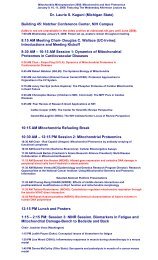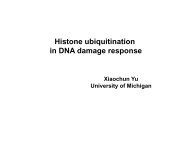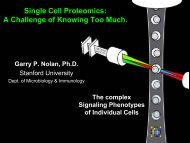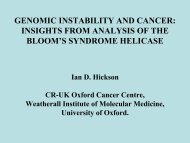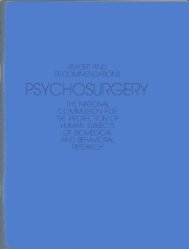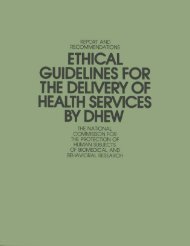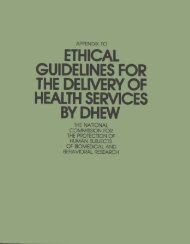RESEARCH ON THE FETUS - National Institutes of Health
RESEARCH ON THE FETUS - National Institutes of Health
RESEARCH ON THE FETUS - National Institutes of Health
You also want an ePaper? Increase the reach of your titles
YUMPU automatically turns print PDFs into web optimized ePapers that Google loves.
encompases "intend no harm." This principle embraces the intention <strong>of</strong> the<br />
physician and not merely "codes <strong>of</strong> action."<br />
(2) The subjective rule (Peel) must be supplemented by an objective<br />
limitation <strong>of</strong> risks by categorically prohibiting research in anticipation <strong>of</strong><br />
abortion if that research entails known or uncertain risks.<br />
(3) Respect for the dignity <strong>of</strong> human life must not be compromised<br />
whatever the age, circumstances, or expectation <strong>of</strong> life <strong>of</strong> the individual. The<br />
recent Supreme Court decision on abortion did not nullify the obligation to protect<br />
the developing fetus from harm, even if that harm is less than abortion.<br />
(4) Vital functions <strong>of</strong> an individual abortus should not be artificially<br />
maintained except where the purpose <strong>of</strong> the activity is to develop new<br />
methods for enabling that abortus to survive to the point <strong>of</strong> viability.<br />
(5) Ethical standards applicable to research on the fetus are the<br />
same as would be subscribed to in proposed research on the unconscious, on the<br />
dying (in the case <strong>of</strong> spontaneous abortion), on the (perhaps justly) condemned<br />
(in cases <strong>of</strong> induced abortion), or in experimentation with children.<br />
For the most part, this means that the use <strong>of</strong> these subjects in nontherapeutic<br />
research is an abuse, for one ought not to "presume" or "construe" consent<br />
for acts <strong>of</strong> charity. Dr. Ramsey agrees with Dr. McCormick that "one stops and<br />
should stop precisely at the point where 'construed' consent does indeed involve<br />
self-sacrifice or works <strong>of</strong> mercy. The dividing line is reached when experiments<br />
involve discernible risk, undue discomfort, or inconvenience."<br />
Seymour Siegel, D.H.L.<br />
Dr. Siegel makes the following points:<br />
(1) A bias for life is the foundation <strong>of</strong> the Judeo-Christian worldview<br />
and it undergirds medical research. It may be affirmed outside the Judeo-<br />
Christian tradition. The bias for life requires individuals to strive to sustain<br />
life where it exists, not to terminate or harm life, and in cases <strong>of</strong> doubt to<br />
be on the side <strong>of</strong> life. A present individual takes precedence over a possible<br />
future individual. The bias for life is to be exercised whatever the status <strong>of</strong><br />
the life before us and whatever the life expectation may be.<br />
36



